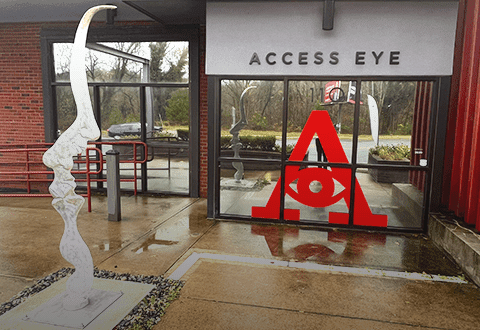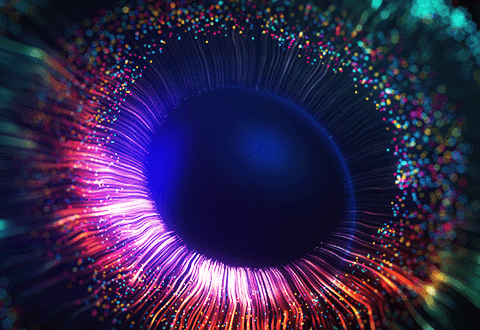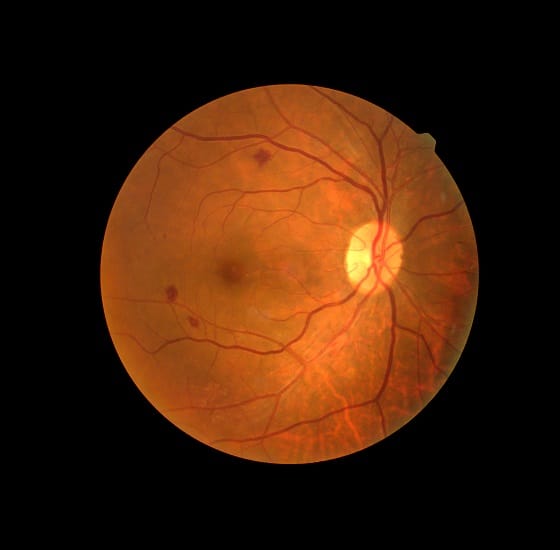Diabetic Retinopathy Treatment
in Fredericksburg, VA
Diabetic retinopathy is a serious eye condition that affects people with diabetes. When left unmanaged, diabetic retinopathy can cause permanent vision loss and even blindness. Patients who have diabetes must be careful to control their blood sugar to avoid sometimes-irreversible damage to their sight. Fortunately, the talented doctors at Access Eye in Fredericksburg, Spotsylvania, Stafford and King George, VA have the experience and knowledge to help their patients with diabetes preserve as much of their vision as possible.

What Diabetic Retinopathy Does to the Eyes
When blood sugar spikes, this can harm the blood vessels located in the retina (the layer at the back of the eye that passes light to the optic nerve). Consequently, these vessels can inflate and seep blood, while also generating new and irregular vessels. Many patients who have diabetic retinopathy go on to develop other serious eye problems like macular edema, neovascular glaucoma and retinal detachment.
IMPROVING LIVES
THROUGH BETTER VISION
Symptoms of Diabetic Retinopathy
Patients may notice symptoms that include:
- Blurry vision
- Declining clarity of vision
- Poor night vision
- Floaters
- Redness of the eyes
- Eye pain or discomfort
The symptoms of diabetic retinopathy tend to be difficult to spot in the condition’s earliest stages. Therefore, the doctors at Access Eye stress to patients with diabetes the importance of undergoing regular eye examinations so that diabetic retinopathy can be diagnosed and treated before stealing some of these patients’ sight. Optometrists can check for diabetic retinopathy with an easy, pain-free dilated eye examination.

Treatment Options for Diabetic Retinopathy
In its earliest stages, diabetic retinopathy is often best treated with careful management of diabetes to stop or slow the progression. If diabetic retinopathy advances or becomes “proliferative,” then prompt treatment is necessary.
Photocoagulation
Also known as focal laser treatment, this procedure can help to stop or at least decelerate the seeping of blood into the eye. The eye doctor identifies the leaky blood vessels and seals them with the laser to great effect.
Pan-retinal photocoagulation is a fellow laser treatment. The objective of this procedure is to use laser energy to prevent the growth of new vessels. Fortunately, these treatments are not painful beyond a momentary and slight burning sensation.
Vascular Endothelial Growth Factor Inhibitors
This medication is injected directly into the vitreous to relive fluid buildup and halt the generation of new blood vessels. VEGF inhibitors have been found to stabilize vision in about 90% of patients. Currently, three types of anti-VEGF drugs are available — Lucentis, Eylea and Avastin — all of which have been proven safe and effective. Periodic injections are necessary for long-lasting results.
Vitrectomy
Vitrectomy is a surgery that drains the vitreous (or clear liquid) from the eye so that the doctor has easy access to remove scar tissue and leaked blood that come about as a result of diabetic retinopathy. It is then safe to replace with a synthetic fluid.
King George Office
7961 Kings Highway
King George, VA 22485
Phone: (540) 371-2020
Office Hours
Ophthalmology in King George, VA Hours
Mondays – 8:00am to 5:00pm
Tuesdays – 8:00am to 5:00pm
Wednesdays – 8:00am to 5:00pm
Thursdays – 8:00am to 5:00pm
Fridays – 8:00am to 5:00pm
Closed for lunch from 1:00pm to 2:00pm
Falmouth Office
110 Cambridge Street
Fredericksburg, VA 22405
(540) 371-2020
Office Hours
Ophthalmology in Falmouth, VA Hours
Monday – 8:00am to 5:00pm
Tuesday – 8:00am to 5:00pm
Wednesday – 8:00am to 5:00pm
Thursday – 8:00am to 5:00pm
Friday – 8:00am to 5:00pm
Route 3 Office
4516 Plank Road
Fredericksburg, VA 22407
(540) 371-2020
Office Hours
Ophthalmology in Fredericksburg, VA Hours
Monday – 8:00am to 5:00pm
Tuesday – 8:00am to 5:00pm
Wednesday – 8:00am to 5:00pm
Thursday – 8:00am to 5:00pm
Friday – 8:00am to 5:00pm
Parkway Office
4701 Spotsylvania Parkway
Suite 110
Fredericksburg, VA 22408
Office Hours
Ophthalmology in Spotsylvania, VA Hours
Mondays – 8:00am to 5:00pm
Tuesdays – 8:00am to 5:00pm
Wednesdays – 8:00am to 5:00pm
Thursdays – 8:00am to 5:00pm
Fridays – Temporarily Closed
Closed for lunch 1:00pm -2:00pm
Dedicated Laser Center
4516 Plank Rd
Fredericksburg, VA 22407
(540) 371-2020
Office Hours
Dedicated Laser Center Hours
Refer to hours listed for the Plank Road Location
Aquia Office
2761 Richmond Highway
Suite 205
Stafford VA, 22554
Office Hours
Ophthalmology in Stafford, VA Hours
Mondays – 8:00am to 5:00pm
Tuesdays – 8:00am to 5:00pm
Wednesdays – 8:00am to 5:00pm
Thursdays – 8:00am to 5:00pm
Fridays – 8:00am to 5:00pm
Closed for lunch 1:00pm -2:00pm



















